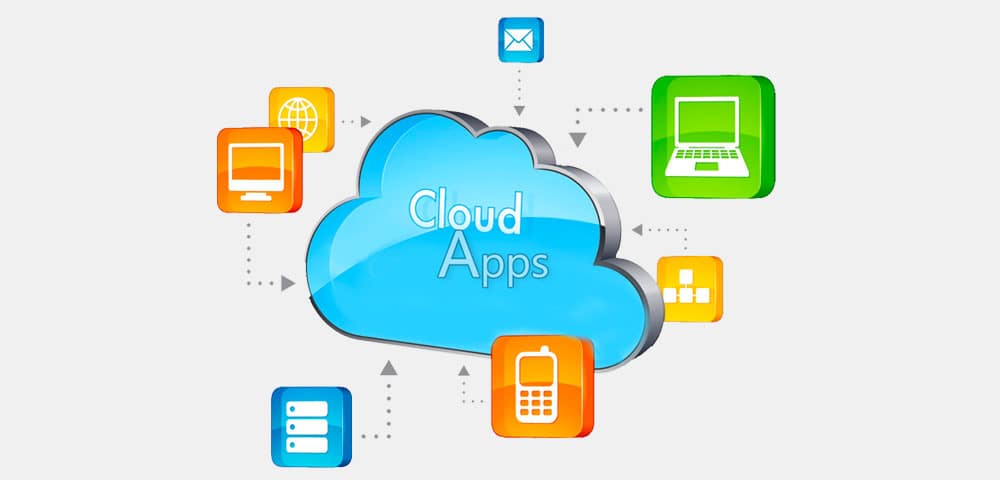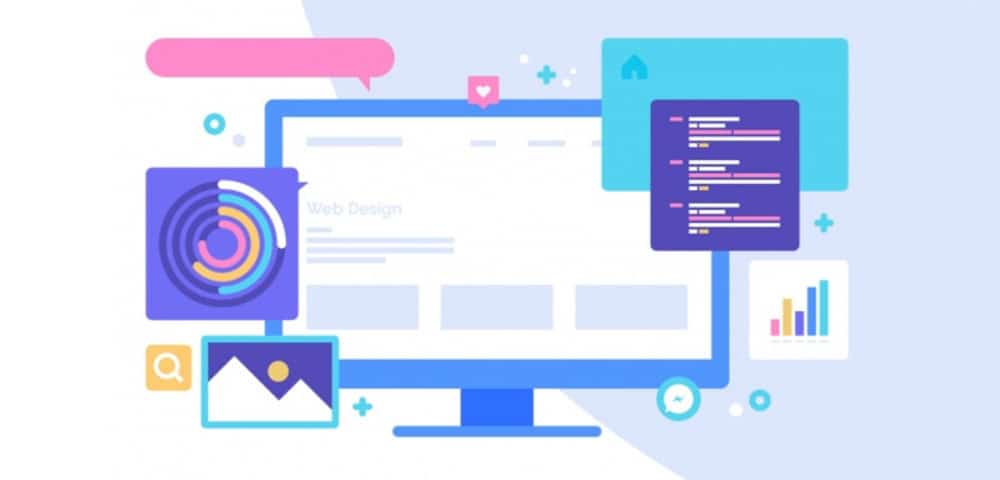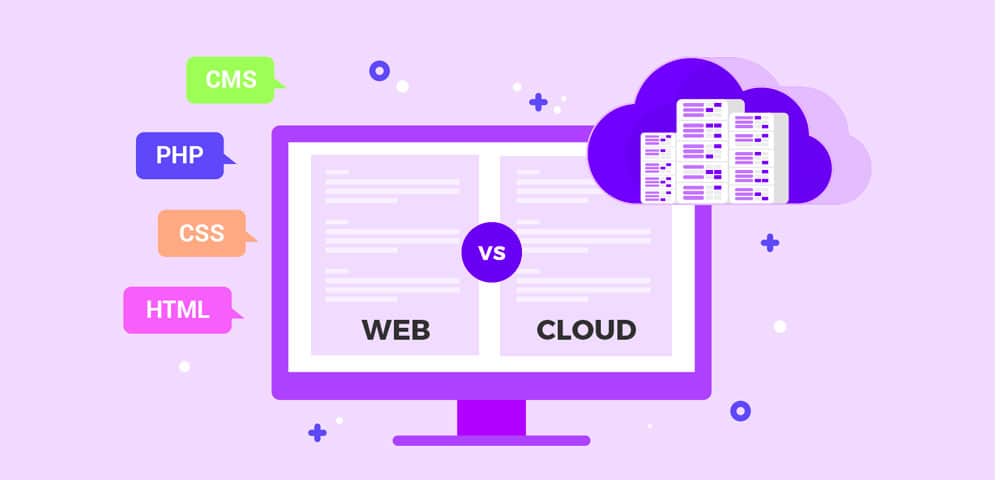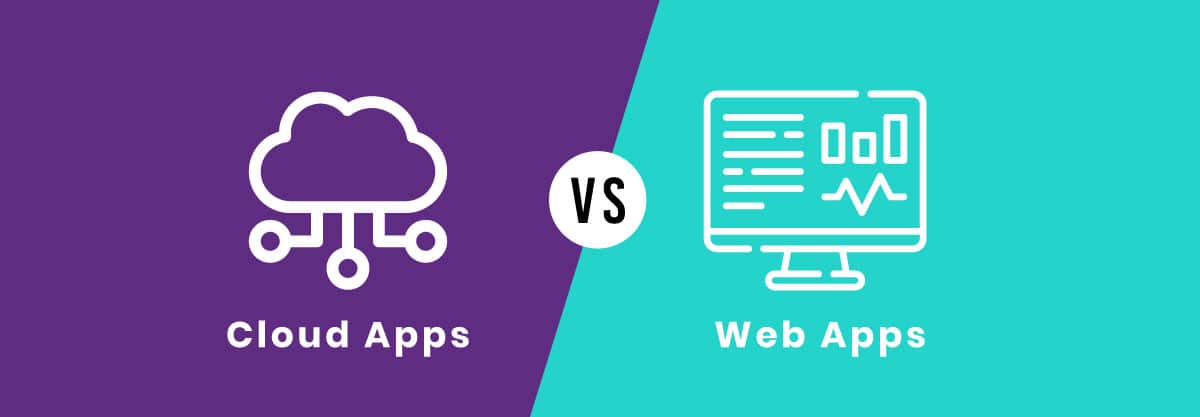In the last two decades, mobile applications have come as a powerful weapon used by businesses and organizations of different niches to showcase their products and services and stay ahead from their competitors.
Apps help in increasing sales, a better engagement for users, collection of data and vital analytics, optimizing business processes, and a lot. So it is not an exaggeration when apps are given the credit of “integral part” of our online existence.
Both Cloud apps and Web apps are on a continuous rise. More than 90% of businesses have deployed and launched mobile apps. As per Forbes, 81% of all enterprises have already laid out cloud-based apps. By the end of the current year, it will increase to 82 i.e. 82% of the workload would be on the cloud.
Cloud apps and web apps give high-level competition to each other. From the user point of view, they may seem similar, but differ a lot from a technical point of view. In this article, we are going to know about both cloud apps and web apps, and which one can better suit your enterprise.
What are Cloud Apps?

For a layman developer, a cloud-based app is just an evolved web app. But there are many other features that a cloud app possesses such as:
A user can use cloud apps through a web browser, or can also install them on his device and need an internet connection to utilize them on the device.
- The data is kept in a cloud infrastructure which can be accessed remotely.
- The data can be cached locally for supporting offline mode
- Cloud apps give better user experience to the users and support different user needs through customization
- The user gets storage, backup, better security, personalization and many other benefits through cloud-based apps.
Some of the most famous cloud apps are Google, Microsoft, and Yahoo while the other renowned cloud apps include NetSuite, Dropbox, Salesforce, Evernote, Zoho, etc.
Read More: How 5G is Revolutionizing Efficiency and Security in Automotive Sector?
Benefits of Cloud Apps
The main advantage of cloud apps is that they are accessible anywhere and anytime whether through on-demand services or by the availability of shared resources. The benefits of cloud apps include:
- Minimum management efforts are required in cloud apps with even low service provider interaction.
- Users can get personalized experiences by customized on-demand service apps. There is no dependency on offering access to information from any location.
- Cloud apps come with high-level capabilities both offline as well as online.
- Customers don’t need to buy cloud apps although some apps are even paid. But most customers only need to pay for the services and products it provides.
- Even when a customer does not install software on the servers, they can use the app’s functionalities.
- Cloud services give better performance and are available every time which makes the work processes smooth and increase profitability.
- Cloud services are capable of providing services to multiple customers.
- These apps are priced on the basis of usage hence you only need to pay for how much you have used.
What are Web apps?

A web app as the name signifies works on a web browser or web technology by using the internet. A web-based application must have a continuous internet connection to work. A website, online e-commerce stores, banking, social media sites etc. are an example of web apps.
Benefits of Web-based apps
There are many advantages of web-based apps too. The important ones are:
- Alike cloud apps, web-based apps are also accessible from anywhere using a web browser
- Most of the web-based apps are able to run on different browsers smoothly and also on different devices.
- Users can access web apps easily if the browser is compatible, reducing the chances of any compatibility issues.
- In comparison to other apps, web apps require less support and maintenance services from the technical end and have fewer requirements from the user’s end computer.
- Users don’t need to download web apps for using them, hence there are no hard drive limitations, however web apps are mostly not available offline therefore you must have a stable internet connection.
- Web apps don’t store client information. Hence, the data servers of the enterprise must check and verify the information. This eliminates the chances of piracy in subscription-based web applications.
- Web apps can be updated and maintained without the need to reinstall the software on thousands of devices.
Read more: Why you should opt for Building an Enterprise Application?
Differences between Web Apps and Cloud Apps
Web Apps and Cloud apps differ from each other in many different ways such as:
- Structure: Structure is the main difference between cloud and web apps. Both these apps need a reliable internet connection to perform, while cloud apps are not dependent on a web browser to function. They are accessible from even without any web interface.
- Web apps are not originally designed to meet the different demands of varying customers. On the other side, cloud apps offer multi-tenancy and can support various needs and requirements of users.
- There is a high level of customization and personalization in the cloud apps which is more interactive for the users. Web apps don’t give the same level of personalization.
- Cloud apps are more frequent in updates and upgrades in comparison to web apps. The users need to download an updated version first in order to use the updated cloud app. In the case of web apps, users don’t need to download.
- While web apps retrieve and verify client information from an enterprise’s data servers, cloud apps can enhance security measures for sensitive information. Security enhancements can be added to cloud environments to ensure cloud apps are more secure.
What should you choose a web app or a cloud app?

It is a big decision whether you should go for a web app or a cloud app. As there is a huge competition, a wrong decision can impact all your efforts. There is no doubt that web-based apps are inevitable while cloud apps are most personalized and customized.
Hence, first, you need to decide whether your niche involves more personalization and frequent updates or a web app is sufficient to demonstrate.
At Amplework Software, the best mobile application development company, we can give you the best consultation for developing your mobile app. Just tell us your idea and we will come up with the best solution.
Read More: Impact of IoT in Mobile Application Development
